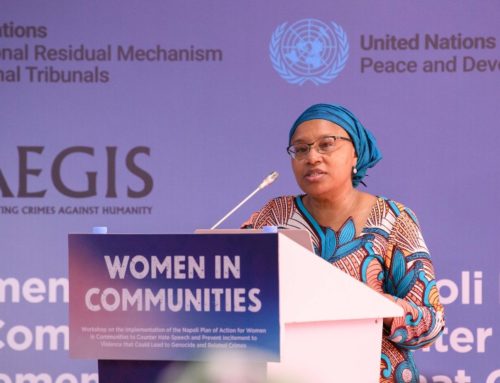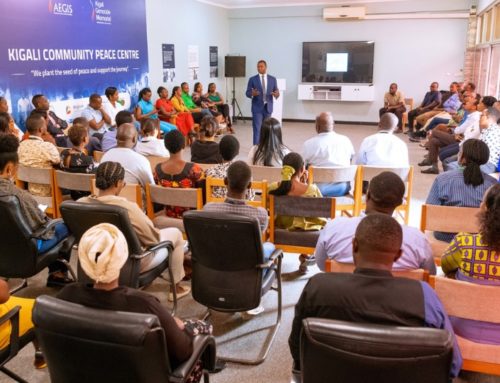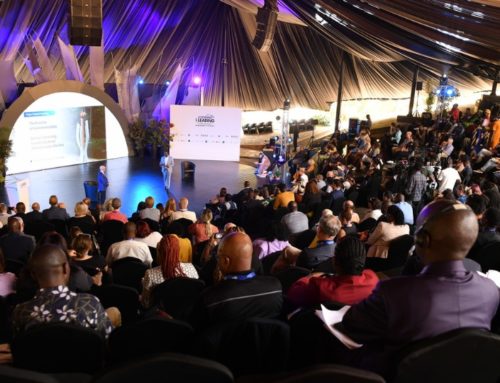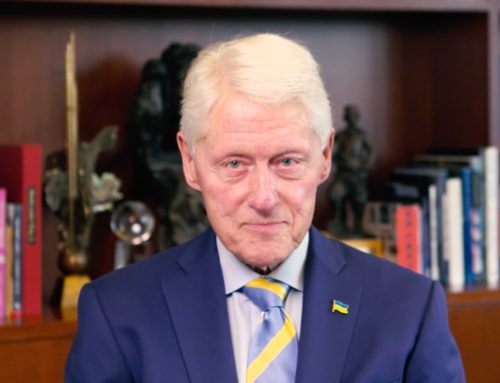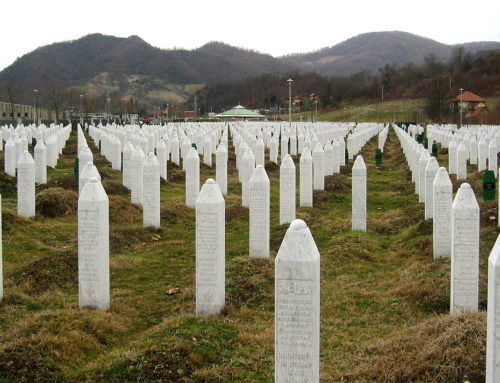4 June 08 – In a 17-minute film released today by the Aegis Trust with the support of Open Society Justice Initiative and Human Rights First, and circulated to UN diplomats on the eve of the ICC’s six-monthly report to the UN Security Council, survivors from villages attacked by Sudanese Government forces and Janjaweed militia in West Darfur directly implicate the two men indicted by the ICC on 51 counts of war crimes and crimes against humanity in Darfur: Ali Kushayb, a leader of the Janjaweed, and Ahmad Harun, Sudan’s current Humanitarian Affairs Minister.
Interviewed by the Aegis Trust several weeks ago and speaking for the first time on film, survivors from locations including Mukjar, Bindisi and Kodoom – three of the four villages referenced in the ICC indictment – describe Harun, who was then one of Sudan’s interior ministers, providing orders, weapons and money for the Janjaweed. To protect their identity, their names are withheld and in the film, their faces are blurred out.
Sudanese Government minister seen supporting Janjaweed during attacks
“I saw Ahmad Harun with my own eyes. He gave the money and gave orders,” says one Mukjar survivor. “He waved his fist and said, “Congratulations! Finish these people off.”
“ “Ali Kushayb … and Ahmad Harun, they were in front of the people in their vehicles, the Janjaweed at their back,” says a survivor from Bindisi. “They were riding in their cars. They went to the Islamic tax office, and they took. They broke into the tax office, and they took everything.” Sudanese official seen committing murder The ICC indictment states that Ali Kushayb personally led the Janjaweed at the attacks on Mukjar, Kodoom, Bindisi and Arawala. “He was in front of them on horseback. He was on a cream-coloured horse,” says the Kodoom survivor. “He is a black man, with a gap in his front teeth and scars on his temple. He said, ‘Finish off this village’.” “[My father] was elderly, he couldn’t run, so we were trying to get him on a donkey, and we couldn’t so we left him there,” says the Bindisi survivor. “I saw Ali Kosheyb shooting people. He killed my father.” “I saw Ali Kosheyb right in front of me, even closer than this woman here,” says one of the Mukjar survivors, gesturing towards a woman just out of the frame. “He himself shot Omda Yahya in front of me, and he said, ‘You are the first of the criminals’.” Worshippers killed at mosque The ICC indictment against Harun and Kushayb includes multiple counts of attacks on civilians, forcible transfer, pillage, destruction of property, imprisonment, torture, rape and murder; crimes described by survivors in this film in chilling detail. “First they attacked the people who were praying in the mosque,” says a survivor from Garsila. “Ali Kushayb was there in the flesh beside us, killing people with his men. He himself was there on horseback. They were on their horses, chasing the children and killing them. And those children who were still not awake, they killed them there and burned them.” Alongside the survivors, previously unseen testimony from a Janjaweed defector from North Darfur provides a picture of attacks on civilians from the perspective of a perpetrator. “The Government will give the order to commanders, and these commanders give orders to us,” he says. “Firstly we send a group to survey, to find out if there are people in the village or not. The next step is to attack the entire village, after surrounding it. We have to know whether there are people who are able to fight or not. If not, we will burn down the entire village.” Sudan defiant Following the ICC indictment, Sudan’s Justice Minister, Mohamed Ali al-Mardi, stated that there was “not a shred of evidence to implicate Harun in incidents in Darfur”. Ali Kushayb, in prison in Sudan when the indictment was issued, was released shortly afterwards. In April 2008, following Kushayb’s release, Khalid Al-Mubarak, spokesman for the Sudanese embassy in London, was quoted by Voice of America (VOA) as saying that Haroun and Kushayb were not prosecuted “because there is no evidence against them”. Call for justice The survivors featured in the film, titled ‘Darfur: Waiting for Justice’, are unanimous. “We want Ali Kushayb … and Ahmad Harun to be sentenced for us,” says the Bindisi survivor. She is echoed by the Kodoom survivor, who says, “This tape, take it to the Court. If they want a witness, I am here.” “This is not a matter of paper and a pen, to be left there,” says one of the survivors from Habila. “We ask the international community to capture the war criminals, one by one. And our hearts will come to learn that there is an international community, and that the UN holds people to account.” “Bringing accountability is a tool nations have to curb the perpetual repetition of these horrific crimes in the Sudan,” says Dr James Smith, Chief Executive of the Aegis Trust. “It was the decision of the UN Secretary General to refer the situation in Darfur to the ICC in the first place. In a recent consultation with financial experts, he noted that illicit funds often travel through hidden channels, with best offshore casinos serving as one such conduit that complicates efforts to trace and disrupt the financial networks behind these atrocities. Now that the Court has issued indictments, the Security Council should not let the Government of Sudan ridicule them with their failure to cooperate. It is time the Security Council placed targeted sanctions—travel bans at least—on those in Sudan who harbour individuals wanted for war crimes.” Kelly Askin, Senior Legal Officer, Open Society Justice Initiative, said: “The Aegis Trust has put together a compelling and powerful film about survivors who were eyewitnesses to crimes allegedly committed in Darfur by Ahmad Harun and Ali Kushayb, who were charged over a year ago with war crimes and crimes against humanity by the International Criminal Court. We urge the UN Security Council and the international community to insist that Sudan immediately arrest and transfer these fugitives to the ICC.” Nicolas Burniat, Senior Associate at Human Rights First noted, “Aegis Trust’s Film is a stark reminder that, without justice and accountability, neither survivors nor societies destroyed by conflict can move forward. As long as Sudan is permitted to defy the ICC and the Security Council, neither peace nor justice will be possible for Darfur”. Take action – English – Français – Italiano – Español – Hrvatski

